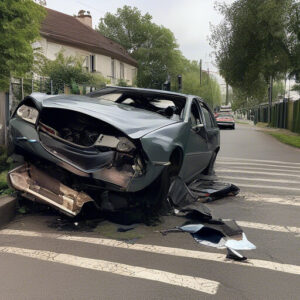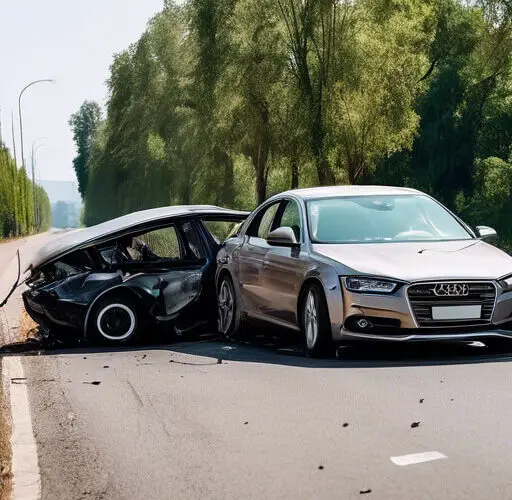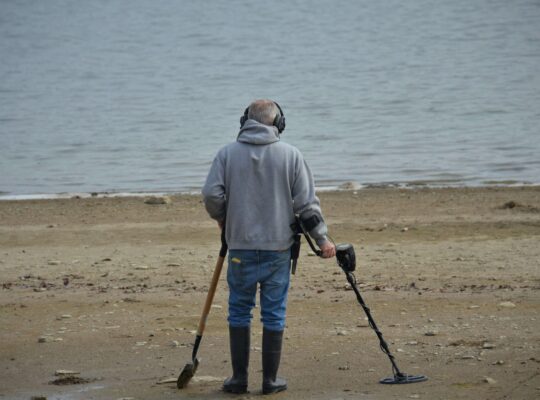Car accidents come along with a major impact on multiple life aspects for the victims and those close to them. Even beyond the aspect of human beings, it does have an impact on credit scores. But hold on, how do accidents affect credit scores? Do car accidents affect credit score?
Car Accidents and Impact on Credit Scores
Among the key ways in which car accidents tend to affect credit score is through the accumulation of debt.
This is normally the case if you are at fault in an accident and you lack enough insurance coverage. In case of an accident, you would be obligated to pay for damaged and medical bills out of your pocket.
Due to this, you would end up experiencing major financial strain and potential missed payments on other financial obligations like credit card bills or loan repayment. Remember, the moment such obligations are missed or late, your credit score is lowered. Also, it becomes harder to secure favorable interest rates in the future.

Insurance claims, though being beneficial in most cases, are another way car accidents might impact your credit score.
Upon filing an insurance claim, it is recorded in your insurance history. Hence, multiple claims within a short period of time act as a signal to lenders that you are a higher-risk borrower. This potentially leads to a lower credit score.
In case your insurance company determines that you were at fault in the accident, your premiums might be increased. Higher premiums mean you would experience more strain on your budget. This would make it challenging for you to keep up with other financial obligations, not forgetting the impact it would have on your credit score.
Do Car Accidents Affect Credit Score
Do car accidents affect credit score? The answer is simply No. Themselves, car accidents, do not directly have any impact on your credit score. Basically, your credit score is dependent on your credit history and financial behavior. This includes payment history, credit utilization, length of credit history, types of credit, and new credit.
Besides the direct relation between your credit history and financial behavior, there is an indirect relation when it comes to car accidents. This implies that car accidents indirectly affect your finances. Consider the following scenarios:
- Insurance Premiums: If you’re involved in a car accident and file an insurance claim, it could lead to an increase in your insurance premiums. Higher premiums may strain your budget, and if you struggle to pay them, it could impact your overall financial health.
- Repair Costs: Depending on your insurance coverage and the severity of the accident, you may have to pay for repairs out of pocket. If you’re unable to cover these expenses and resort to using credit cards or loans, it could affect your credit if you’re unable to manage the resulting debt.
- Missed Payments: If the financial strain from the accident leads to missed payments on credit accounts, such as credit cards or loans, this can negatively impact your credit score. Payment history is a significant factor in determining credit scores.
- Unpaid Judgments or Liens: If the accident results in a lawsuit and a judgment or lien is placed against you, it could affect your credit score. Unpaid judgments and liens may be reported to credit bureaus and can have a negative impact on your credit.
The above scenarios pinpoint how the indirect effect of car accidents has the potential to impact your credit score in case they are not properly managed.
Credit Score Factors Affected by Car Accidents
There are several common credit score elements that are impacted by car accidents.
Among these factors is the payment history. This comes into play if you are unable to make payments on time because of financial strain resulting from a car accident. Remember that any missed or late payment has the potential to stay on your credit report for up to 7 years. This makes it harder for you to get credit in the future.

Credit utilization is yet another factor. Relying on credit cards to cover costs related to a car accident increases your credit utilization ratio. A high utilization ratio lowers credit score, as it is an indication of a higher risk of defaulting on your financial obligations.
The accumulation of medical bills is also another way car credit score is impacted by car accidents. This is the case because when you are involved in a car accident, the resulting bills from the medical treatment might be substantial for your case. Being unable to pay the bills in a timely manner means a collection would be sent, resulting in a negative impact on your credit score.
Protecting Credit Score after an Accident
In the course of an accident, you need to report the accident to your insurance company, this is as soon as possible.
Next, you have to promptly fill out a claim to assist in making sure that any necessary repairs or medical experiences are covered. This would reduce the financial burden you would have.
Make an attempt to review your insurance policy. The aim is to understand the coverage you have in the care of a car accident. By being aware of your coverage limits and deductibles, you get to make informed decisions about how to handle the financial aftermath of the accident.
If you are facing financial challenges as a result of a car accident, consider reaching out to your creditors and explaining your situation. Many creditors are willing to work with you to develop a repayment plan that fits your budget.
Ways to Repair Credit Score after an Accident
If your credit score has been negatively impacted by a car accident, there are certain steps you can take to repair it.
Among the steps is making all payments on time. Consistently paying your bills by their due dates assists in rebuilding your credit history. It also demonstrated responsible financial behavior.
Get to Understand Whose Credit Score Is Used On a Joint Mortgage
You will have to pay down any outstanding debts. Reduction of your credit utilization ratio improves your credit score. Focus on paying off high-interest debts first, as they have a more significant impact on credit score.
Ensure you monitor your credit report. Doing so would assist you in identifying any errors or discrepancies that have an impact on your credit score. In case you notice any inaccuracies, make an effort to dispute them with the credit reporting agencies to have them corrected.
Final Words
Although car accidents do not have a direct impact on your credit score, take into consideration the indirect impacts it has.
With credit score being a valuable financial asset, take the necessary steps to protect it. You would start by taking proactive actions in managing your financial obligations such as proper planning, having a budget, and seeking legal assistance in times of accidents.








